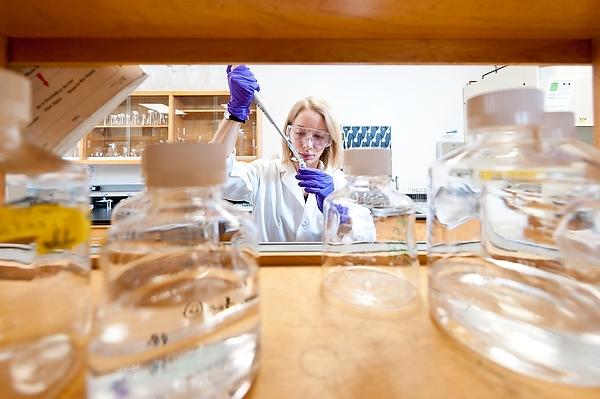A proposed bill banning sale and use of aborted fetal tissue could impact University of Wisconsin research, officials say.
In the wake of leaked videos showing a Planned Parenthood doctor discussing the sale of aborted fetal tissue with members of an anti-abortion organization, Wisconsin legislators drafted a bill that would ban both the sale and use of aborted fetal tissue for research purposes.
In a public hearing Aug. 11, the lead sponsor of the bill, Rep. Andre Jacque, R-DePere, said the videos provide proof that the current federal ban on the sale of aborted fetal tissue is inadequate and reason to pass the bill in Wisconsin.
“Contrary to common belief, the sale of fetal tissue is not already outlawed in Wisconsin,” Jacque said. “The sale of aborted children’s body parts is only prohibited when it takes place across state lines, not within a state.”
UW School of Medicine and Public Health Dean Dr. Robert Golden also spoke at the public hearing, but said the federal ban as implemented in Wisconsin already does an appropriate job regulating medical research.
Golden said going beyond the current federal restrictions would halt research with life-saving potential and discourage federal investment in Wisconsin research ventures that require fetal tissue.
Laura Kiessling, a UW chemistry professor who uses cell lines derived from aborted fetal tissue in her research, expressed concern regarding the impact the ban would have on both current and future UW researchers and employees.
“To me it sends a message that we are limiting, unlike other states, what kind of research that can go on here at the UW-Madison and at our other campuses,” Kiessling said. “That is really concerning in terms of attracting the best new faculty and keeping outstanding faculty here.”
While Jacque said the bill will be revised to permit research on the cell lines, which Kiessling and Wisconsin research companies like FluGen use, Golden said even with the amendments, “the development and use of life-saving treatments” will still be shut down in Wisconsin.
According to Golden, the ban would outlaw the use of aborted fetal tissue in current studies on Parkinson’s disease, several kinds of cancer and heart disease.
It would force Wisconsin researchers using it as a tool to either adjust their experimentation accordingly or leave the state to avoid criminal charges.
“Researchers, both public and private, who use fetal tissue or cells will be considered criminals, and this life-saving research will come to a complete and abrupt stop in Wisconsin with a devastating effect on our state’s capacity to attract and retain biotechnology,” Golden said.
Golden reported that at UW alone, approximately $76 million of federal funding supports 100 labs using fetal tissue and collectively employ 1,400 people. Jacque urged these labs to use fetal tissue derived by “ethical means,” like miscarriages instead of abortions.
Pro-Life Wisconsin Legislative Director Matt Sande focused on the outcome for the aborted fetus in a statement released following the Planned Parenthood videos.
“The preborn aborted child did not consent to his or her abortion, and certainly did not consent to his or her experimentation,” Sande said in the statement. “Human dignity demands that our aborted brothers and sisters receive a proper burial, not to mention their full protection as persons under the law.”
While Sande called the use of aborted fetal tissue for research unethical, Golden said a ban would cause diseased citizens to lose hope for a cure.
“The cells that might have provided a pathway to a cure will be simply be discarded,” Golden said in the public hearing. “People who need effective treatments will go without help and even hope.”

















